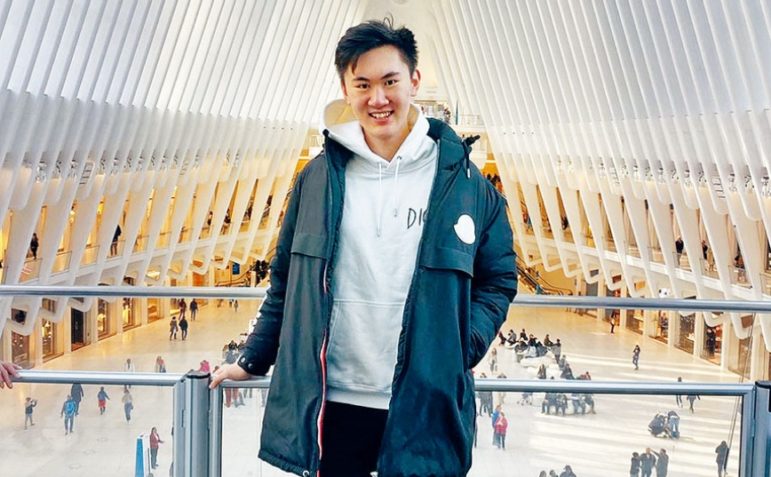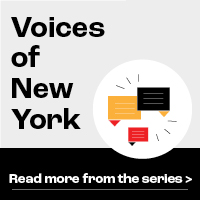
Courtesy Mao Bincheng
NYU student Mao Bincheng started a student organization to combat racism, after being discriminated against himself for wearing a face mask.Read the original story in Chinese at Sing Tao Daily
Translated by Rong Xiaoqing
Last year, when anti-Semitic incidents were on the rise in New York, New York University freshman Bincheng Mao realized it was not only the Jewish people suffering. So he launched an organization called the East Coast Coalition for Tolerance and Non-Discrimination (ECC) with some college friends, calling for young people to come on board and fight against racism.
“We thought racism against one ethnic group would eventually make all minorities victims,” Mao said.
But he never expected he’d soon be a victim of that discrimination himself: On Feb. 7, Mao went to the Bronx to visit friends, stepping into a grocery store on the way. Though the coronavirus had yet to hit the U.S. at the time, Mao wore a mask. While he was waiting in line to pay, a customer walked toward him, called him a “virus,” and poured half a bottle of mineral water onto his face mask.
Growing up in Tianjin, China, Mao had spent four years in high school in the U.S., but says he had never encountered such an overt act of racism. He was stupefied, dropped everything in hands, and ran out of the store. On the subway back home, Mao was nervous.
“Everyone around me looked like they were going to attack me at any moment,” he said.
By then, the ECC had already launched an emergency relief project to raise money to donate Personal Protective Equipment to local hospitals. This made Mao even more upset and frustrated about the attack, but also helped him realize that the college students had to do more to fight the wave of anti-Asian sentiment witnessed during the pandemic.
“I wore a mask not only to protect myself, but to protect people around me, including [the attacker],” Mao said. “Do you think someone who attacks other people for wearing a mask would care if you donate a mask to him?”
Following the incident, the ECC launched a new project called “Minority Defense Initiative: Standing up to Racism and Xenophobia in the Wake of COVID-19,” in which members post videos and write blog posts on their social media platforms to raise awareness about anti-Asian racism and have their voices heard.
The project went viral among college students, and some blog entries have received tens of thousands of clicks and been re-posted frequently. Meanwhile, the ECC is working with other cultural and rights organizations to organize anti-racism forums.
In May, it helped organize a Zoom forum hosted by the Asia Society, featuring well-known panelists like like Joan Chen, Wang Leehom and Tzi Ma to California Congressman Ted Lieu and CNN presenters Lisa Ling and Van Jones. It attracted more than 1,000 viewers.
Mao said the purpose of these events is to help more people be aware of the anti-Asian racism. “Not everyone knows of it. I believe if they do, most people won’t support it,” he said.
Will these activities help curb the rising wave of racism? Mao think so. He said 3,000 students from 15 colleges in the U.S. now have joined the ECC, and “with so many young people getting involved, I am absolutely confident.”








